Research
2024
- JOP
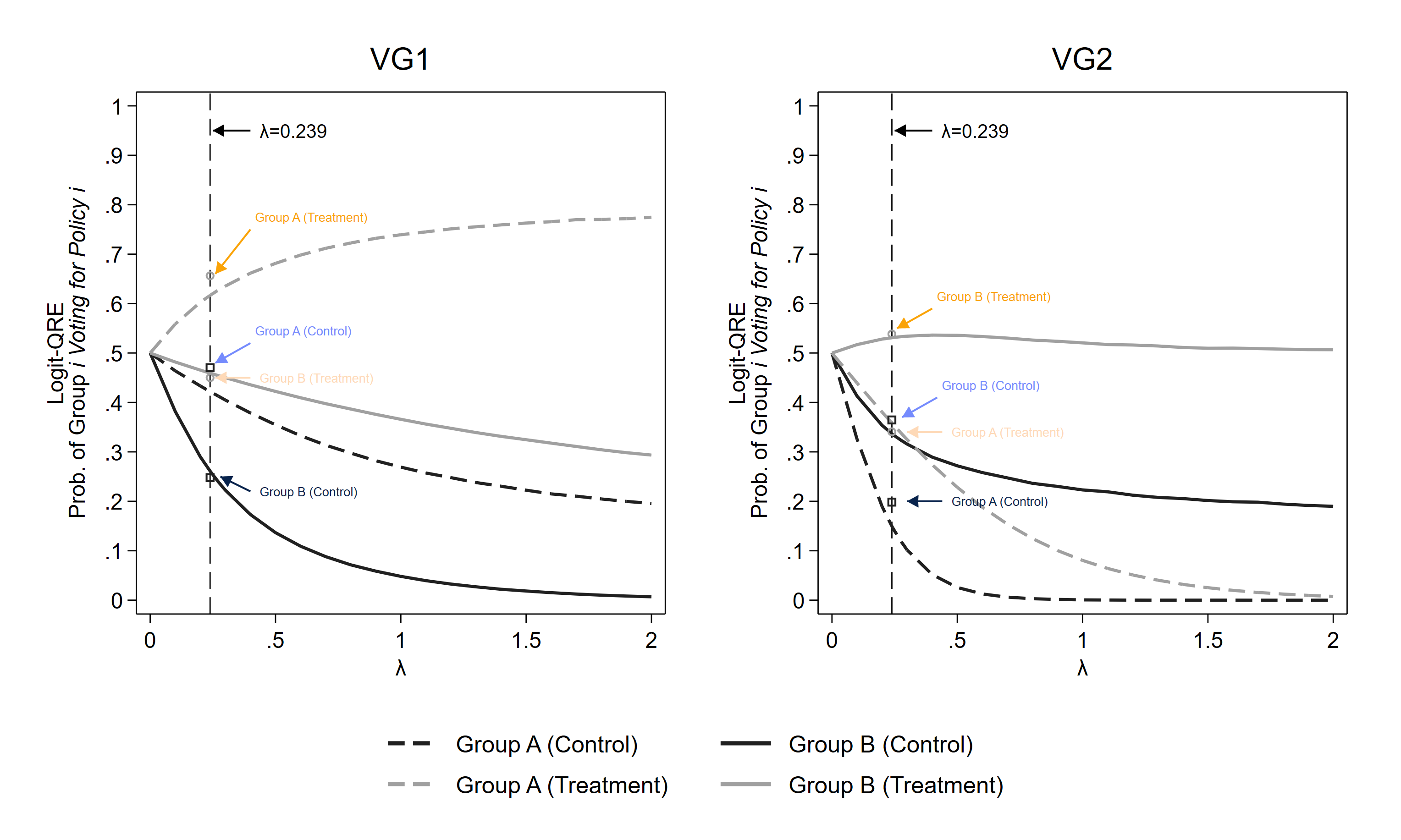 Race to the Top: How Competition for Political Power Affects ParticipationKai OuThe Journal of Politics, 2024
Race to the Top: How Competition for Political Power Affects ParticipationKai OuThe Journal of Politics, 2024In politics, power is key. Engaging in competitive political environments and gaining political power through competition can have significant ramifications on an individual’s financial and interpersonal life and influence how individuals behave politically. I hypothesize that competition for political power causes voters to place more value on the importance of participation, and it triggers a strong desire to seek economic status by using power, which mobilizes political participation. Using behavioral theory and three laboratory experiments, I find evidence supporting these effects. I take special care to distinguish these effects from those induced by endogenous formation of group identity, strategic voting, and other compelling behavioral theories. Substantively, I discuss the implications of these findings in the context of how the civil rights movement affected Black voters’ participation, how the process of immigration affects immigrants’ political behavior, and how empowering women in the political processes influences women’s participation.
@article{ou2024race, title = {Race to the Top: How Competition for Political Power Affects Participation}, author = {Ou, Kai}, journal = {The Journal of Politics}, volume = {86}, number = {1}, pages = {305--320}, year = {2024}, publisher = {The University of Chicago Press Chicago, IL} } - POBE
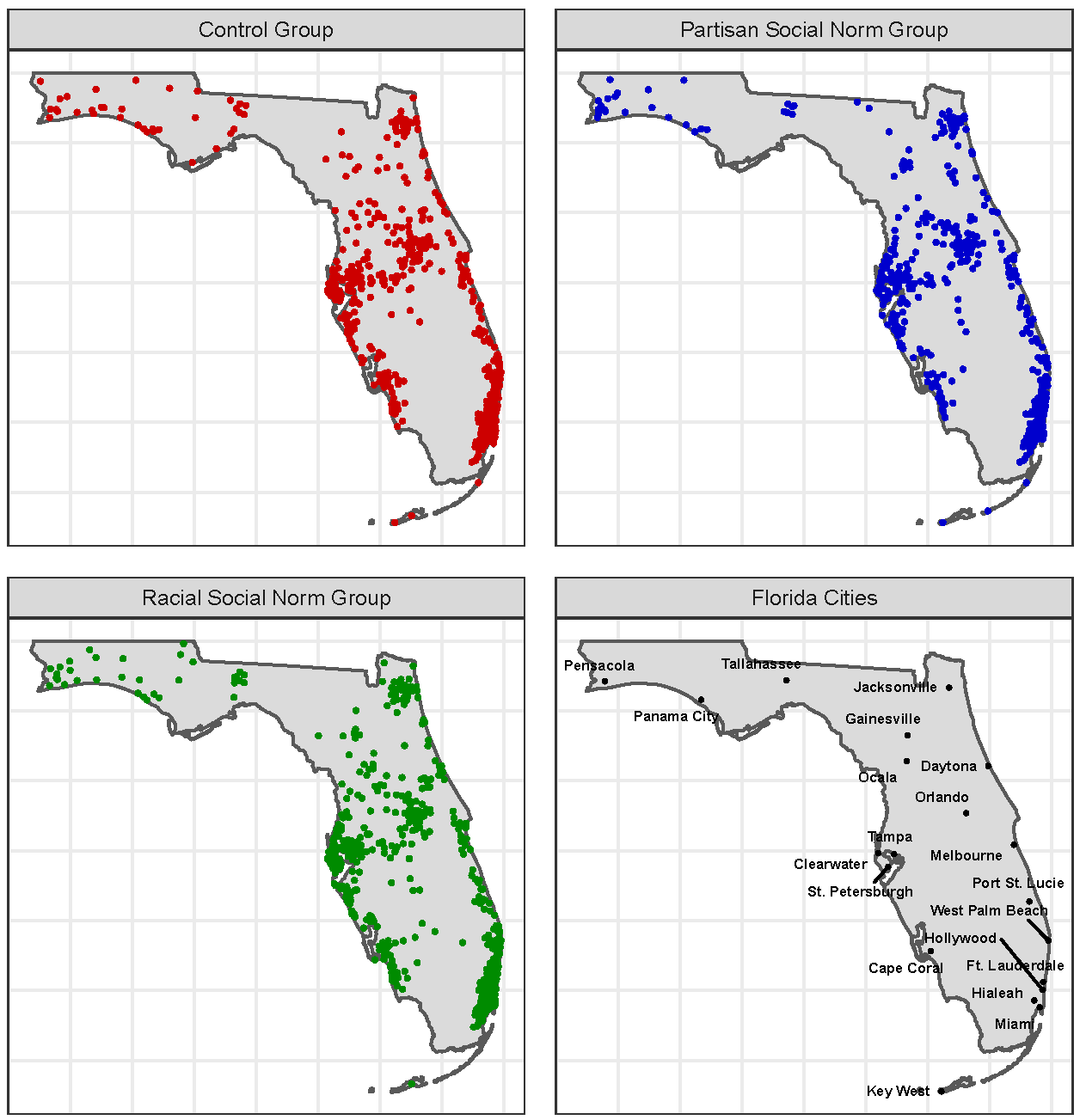 Racial and Partisan Social Information Prompts Campaign Giving: Evidence from a Field ExperimentKaren H Cyphers, Hans JG Hassell, and Kai OuPolitical Behavior, 2024
Racial and Partisan Social Information Prompts Campaign Giving: Evidence from a Field ExperimentKaren H Cyphers, Hans JG Hassell, and Kai OuPolitical Behavior, 2024Electoral campaigns are increasingly reliant on small donations from individual donors. In this work, we examine the influence of racial and partisan social descriptive norms on donation behavior using a randomized field experiment. We find that partisan identity information treatments significantly increase donation behavior, while racial identity information has only small and insignificant effect compared to the control. We find, however, significant variation by racial status. For minorities, information about the behavior of other donors in their racial group is as powerful or more powerful than information about co-partisan behavior, while white respondents are much more responsive to information about co-partisan behavior than to information about co-racial behavior. Our results show that partisan and racial identity based social normative information can have a strong effect on actual donation behaviors and how these normative motivations vary across racial groups.
@article{cyphers2024racial, title = {Racial and Partisan Social Information Prompts Campaign Giving: Evidence from a Field Experiment}, author = {Cyphers, Karen H and Hassell, Hans JG and Ou, Kai}, journal = {Political Behavior}, pages = {1913–1933}, volume = {46}, year = {2024}, publisher = {Springer} }
2023
- PSRM
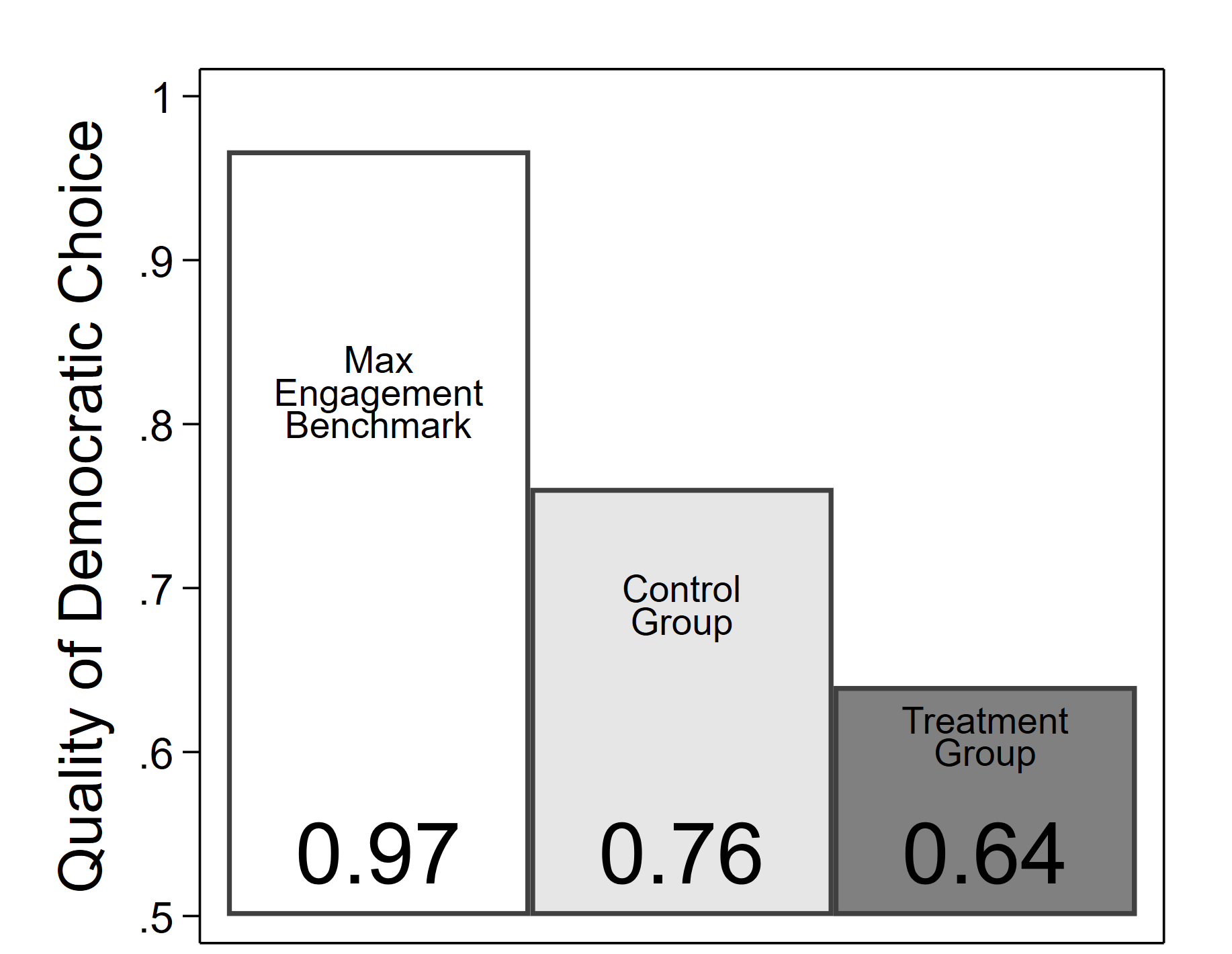 The concreteness of social knowledge and the quality of democratic choiceKai Ou, and Scott A TysonPolitical Science Research and Methods, 2023
The concreteness of social knowledge and the quality of democratic choiceKai Ou, and Scott A TysonPolitical Science Research and Methods, 2023Democracy relies on citizens who are politically knowledgeable and engaged. However, when a voter gains political knowledge regarding important issues, through television, town halls, or social media, she also learns that there are many other politically knowledgeable voters, highlighting the importance of social knowledge in political participation. Will a voter with concrete—as opposed to hypothetical—knowledge about other voters’ political knowledge have an increased incentive to participate? Or instead, will concrete social knowledge about other voters actually inhibit participation? In this article, we develop a novel experimental design that focuses on whether concrete knowledge about other voters’ political knowledge influences political participation. Our main result shows that concrete social knowledge decreases individual voters’ willingness to vote, and thereby reduces the probability democracy chooses the majority preferred alternative, i.e. the quality of democratic choice.
@article{ou2023concreteness, title = {The concreteness of social knowledge and the quality of democratic choice}, author = {Ou, Kai and Tyson, Scott A}, journal = {Political Science Research and Methods}, volume = {11}, number = {3}, pages = {483--500}, year = {2023}, publisher = {Cambridge University Press} }
2022
- PUBC
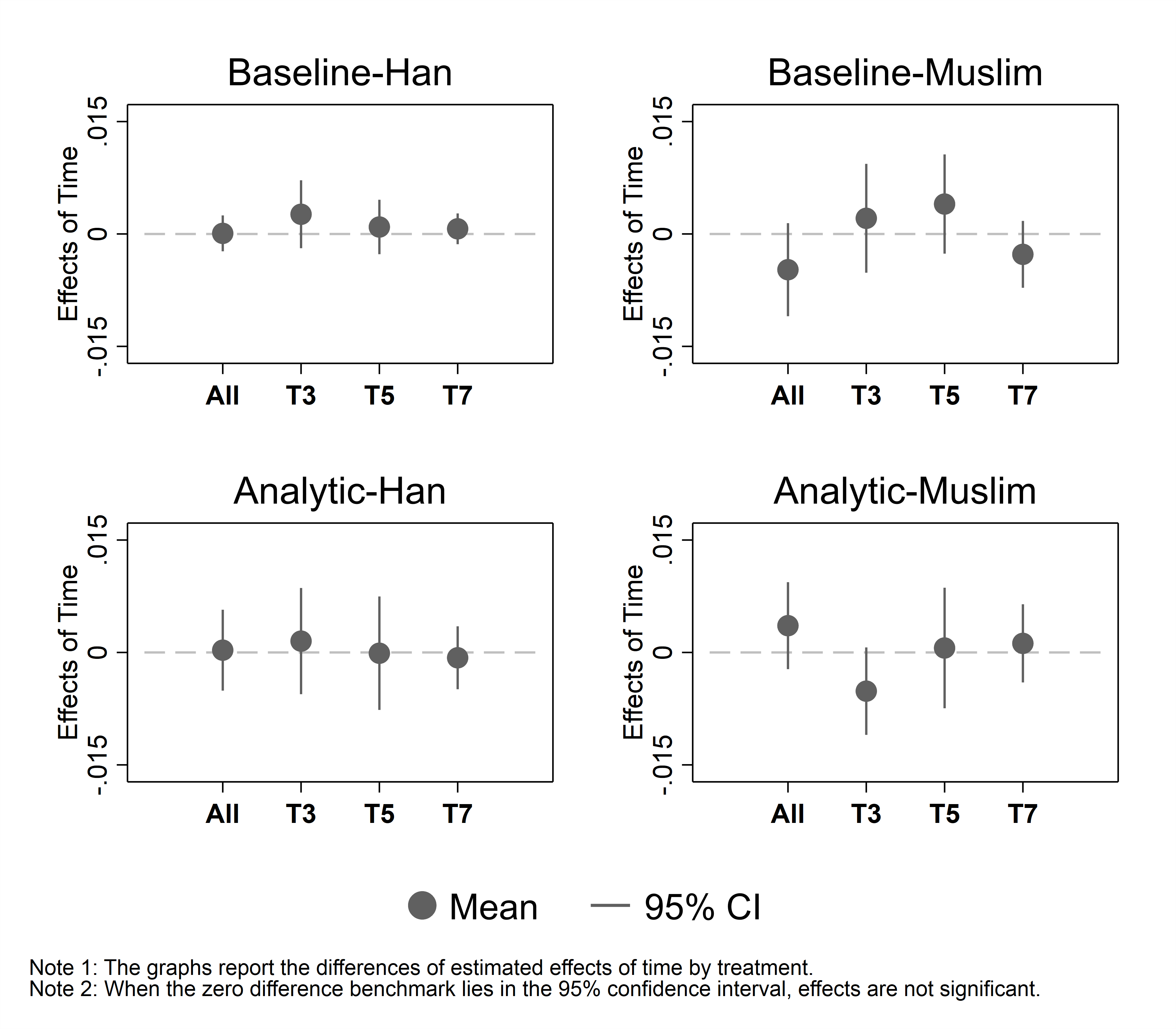 Analytical thinking, prosocial voting, and intergroup competition: experimental evidence from ChinaRebecca B Morton, Kai Ou, and Xiangdong QinPublic Choice, 2022
Analytical thinking, prosocial voting, and intergroup competition: experimental evidence from ChinaRebecca B Morton, Kai Ou, and Xiangdong QinPublic Choice, 2022We investigate whether and how analytical thinking affects Muslims’ prosocial voting towards in-group (fellow Muslims) and out-group (Han Chinese) members. We conduct an incentivized laboratory-style voting experiment in western China, where tension and competition exist between the two ethnic groups. We find a significant negative effect of analytical thinking on prosocial voting in general. We also find that the effect of analytical thinking is related to group identity: A strong and significant negative effect is found on behavior towards out-group members, but a small and generally insignificant effect towards in-group members. Our results are consistent with group competition affecting the benefits and costs of prosocial voting, and those benefits and costs become more salient when engaging in analytical thinking.
@article{morton2022analytical, title = {Analytical thinking, prosocial voting, and intergroup competition: experimental evidence from China}, author = {Morton, Rebecca B and Ou, Kai and Qin, Xiangdong}, journal = {Public Choice}, volume = {191}, number = {3-4}, pages = {363--385}, year = {2022}, publisher = {Springer Netherlands} }
2021
- EER
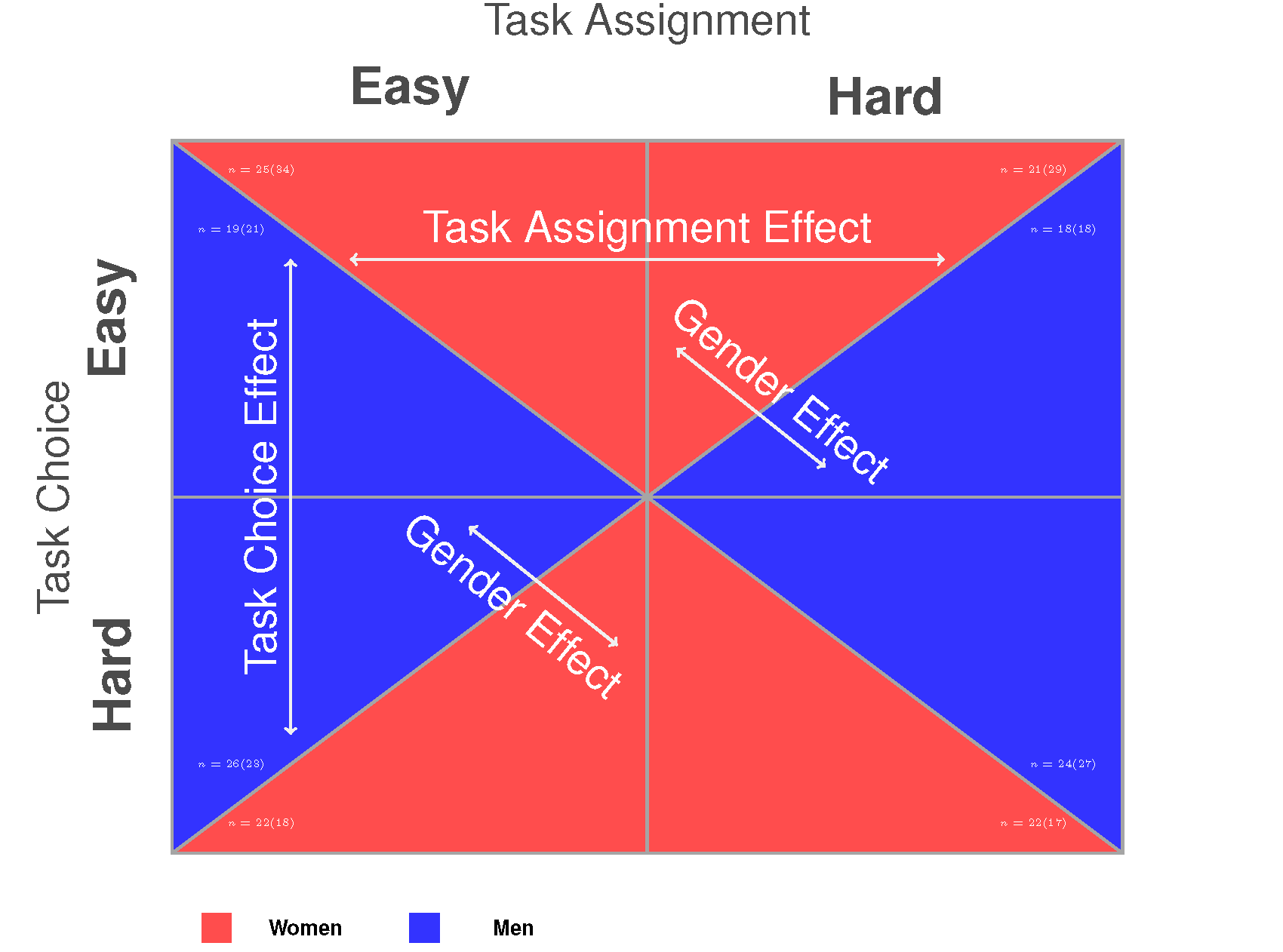 The effect of task choice and task assignment on the gender earnings gap: An experimental studyKai Ou, and Xiaofei PanEuropean Economic Review, 2021
The effect of task choice and task assignment on the gender earnings gap: An experimental studyKai Ou, and Xiaofei PanEuropean Economic Review, 2021Previous studies explain the gender earnings gap by gender differences in choosing competitive and higher-paying jobs. However, little is known about whether and how women’s earnings are affected when they choose more challenging jobs. In this study, we use a novel identification strategy to investigate 1) how the gender earnings gap arises from individuals’ self-selecting into different tasks and 2) whether mobilizing women to work on the tasks typically preferred by men increases women’s earnings and decreases the earnings gap. Our results show that men who prefer the hard and higher-paid task are more likely to obtain higher earnings regardless of the task they are assigned. In contrast, we find that women obtain higher earnings when they work on a hard and higher-paid task even if their initial take choice is the easy and lower-paid one. Our findings are consistent and robust across task stereotypes. Our results imply that mobilizing women to work on more challenging and rewarding tasks is likely to reduce the gender earnings gap.
@article{ou2021effect, title = {The effect of task choice and task assignment on the gender earnings gap: An experimental study}, author = {Ou, Kai and Pan, Xiaofei}, journal = {European Economic Review}, volume = {136}, pages = {103753}, year = {2021}, publisher = {Elsevier} }
2020
- JEBO
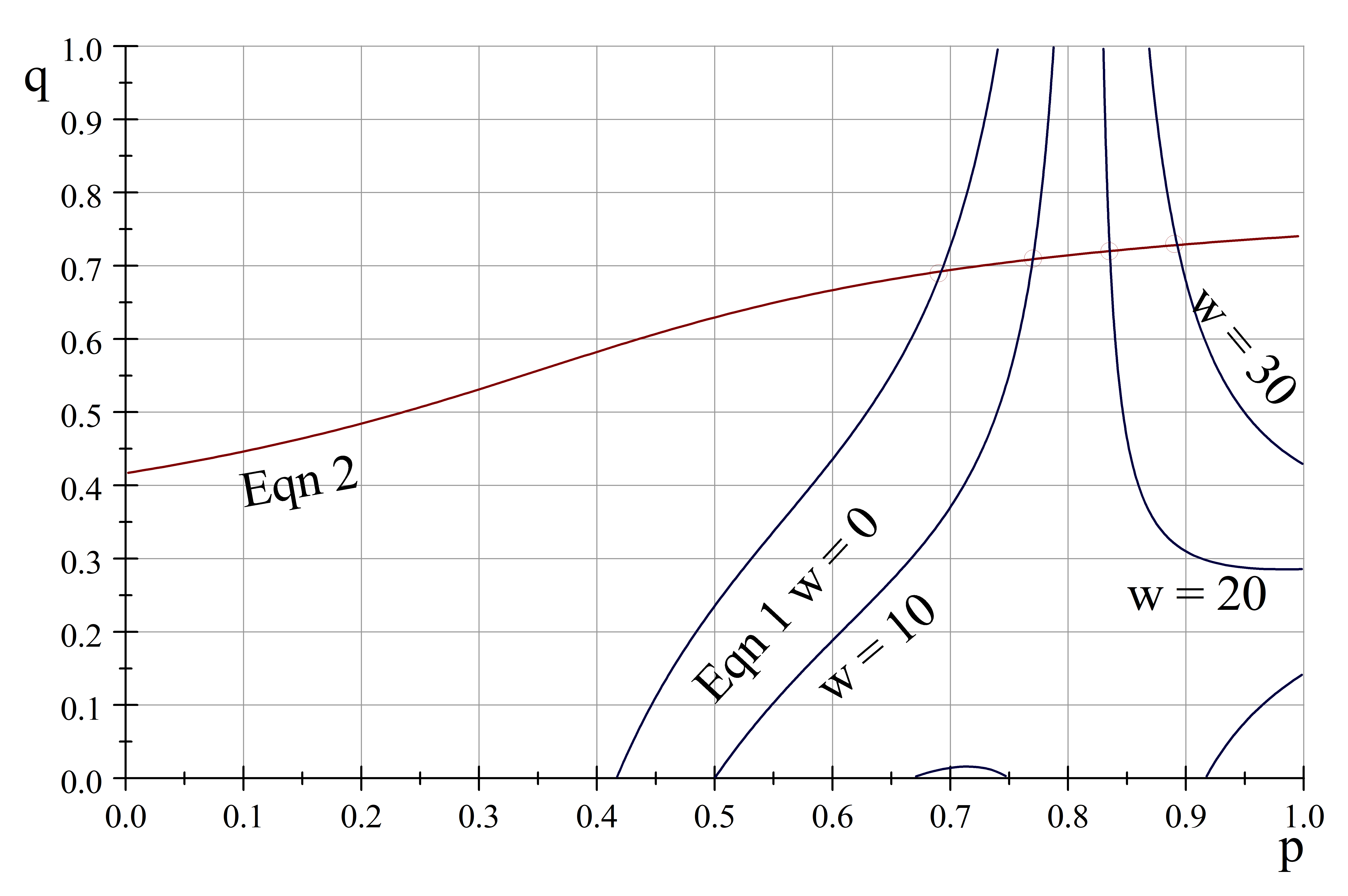 Reducing the detrimental effect of identity voting: An experiment on intergroup coordination in ChinaRebecca B. Morton, Kai Ou, and Xiangdong QinJournal of Economic Behavior & Organization, 2020
Reducing the detrimental effect of identity voting: An experiment on intergroup coordination in ChinaRebecca B. Morton, Kai Ou, and Xiangdong QinJournal of Economic Behavior & Organization, 2020A frequently mentioned impediment to intergroup coordination are pre-existing and long-standing divisions between voters along social and ethnic lines. While there are compelling discussions of the effects of identities on voting – focusing on either minimal group identities or naturally occurring identities – scholarly understanding of how to reduce the detrimental effect of identity voting remains limited. In this study, we compare the differential effects of payoff relevant minimal group identities and ethnic identities on intergroup coordination, and explore the effectiveness of repetition and communication on intergroup cooperation. We present findings from a series of experiments conducted in China with Tibetan and Han Chinese, with variations in the degree of identity salience and focality of the choices. We find that the naturally occurring ethnicities are indeed more salient than the minimal group identities. To a large extent, repetition and communication work to reduce the identity effects on voting, even when these effects are strongly reinforced by other identities. We find that conflicting multiple identities appear to be the most difficult to overcome in voter coordination games, but over time, we see that subjects achieve greater coordination through communication.
@article{MORTON2020320, title = {Reducing the detrimental effect of identity voting: An experiment on intergroup coordination in China}, journal = {Journal of Economic Behavior \& Organization}, volume = {174}, pages = {320-331}, year = {2020}, issn = {0167-2681}, doi = {https://doi.org/10.1016/j.jebo.2019.02.004}, author = {Morton, Rebecca B. and Ou, Kai and Qin, Xiangdong}, keywords = {Identities, Communication, Repetition, Other-regarding choices, Tibetan, Intergroup coordination, Lab-in-the-field experiment} } - JPET
 The effect of religion on Muslims’ charitable contributions to members of a non-Muslim majorityRebecca B Morton, Kai Ou, and Xiangdong QinJournal of Public Economic Theory, 2020
The effect of religion on Muslims’ charitable contributions to members of a non-Muslim majorityRebecca B Morton, Kai Ou, and Xiangdong QinJournal of Public Economic Theory, 2020We investigate the effects of religion on charitable contributions of Muslims who are in a minority to non-Muslims who are in a majority and to fellow Muslims. We find that religious thinking leads to significantly more charitable giving by 10%. The effect of religious thinking is dependent on the ethnic identity of the recipient. We find a significant effect on giving behavior toward relatively more privileged out-group members (Han Chinese), but a small and generally insignificant effect toward in-group members (fellow Muslims). With religious thinking, prosocial behavior toward out-group members is significantly higher by 14%, which is mainly explained by the religiosity of Muslims. Our results have implications for our understanding of the influence of Islamic rules on Muslims’ attitudes and behavior toward non-Muslims and for the design of fundraising mechanisms in Muslim communities.
@article{morton2020effect, title = {The effect of religion on Muslims' charitable contributions to members of a non-Muslim majority}, author = {Morton, Rebecca B and Ou, Kai and Qin, Xiangdong}, journal = {Journal of Public Economic Theory}, volume = {22}, number = {2}, pages = {433--448}, year = {2020}, publisher = {Wiley Online Library} }
2019
- JEPS
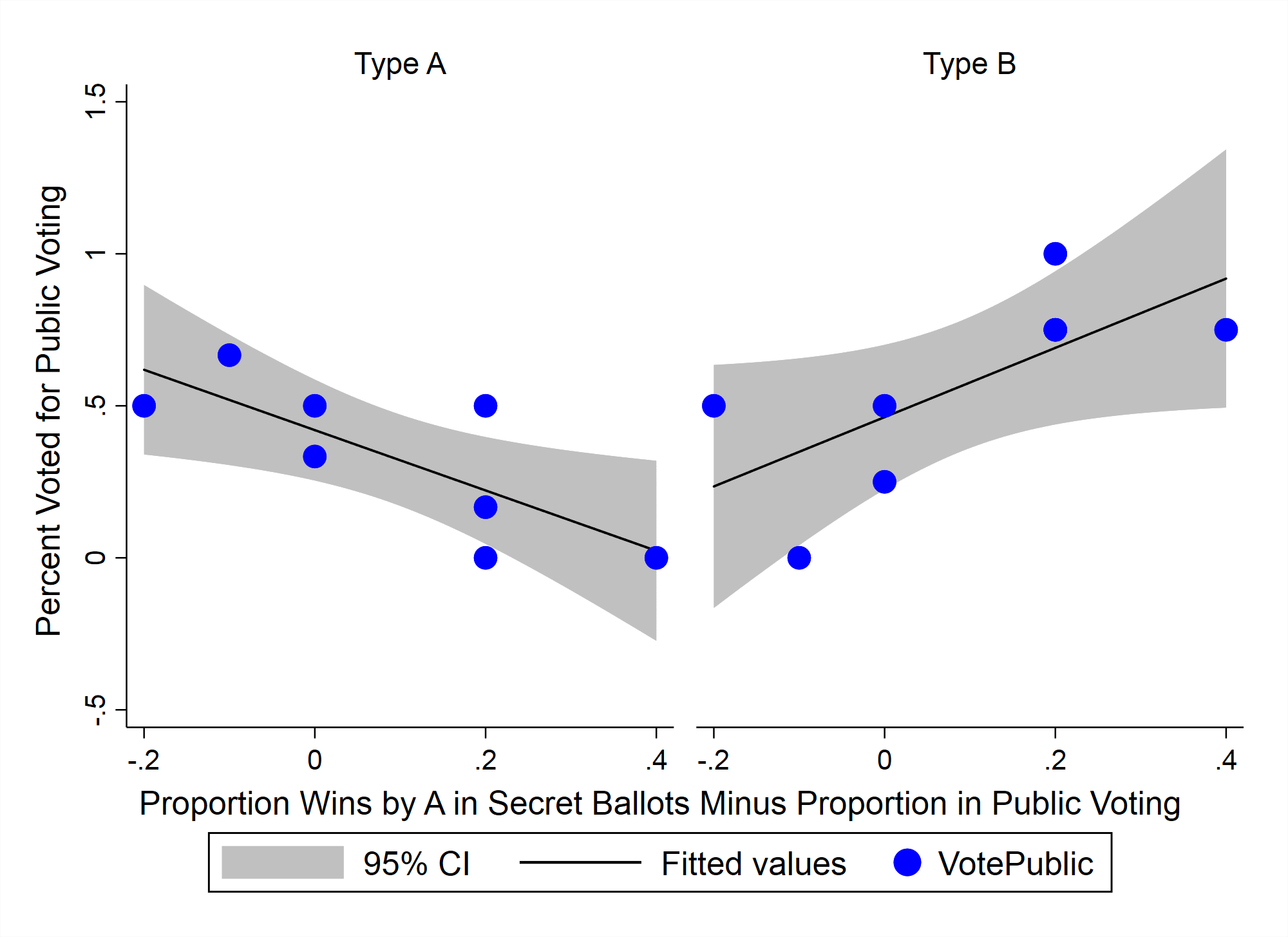 Public Voting and Prosocial BehaviorRebecca B. Morton, and Kai OuJournal of Experimental Political Science, 2019
Public Voting and Prosocial BehaviorRebecca B. Morton, and Kai OuJournal of Experimental Political Science, 2019One argument against secret ballots is that such procedures lead to more selfish voting behavior and that public voting can increase prosocial voting and the likelihood of prosocial outcomes when voters are not subject to intimidation and coercion from outside interests. We investigate this supposition as well as voter preferences over observability in voting in this context. We find that voters are significantly more likely to choose unselfishly when voting is public. These differences in behavior advantage prosocial choices in elections (by 27%) when voting is public. Moreover, voters appear to recognize these differences and a substantial minority of voters whose selfish preference is not the prosocial choice willingly choose public voting even though the likely outcome will be costly to themselves.
@article{Morton_Ou_2019, title = {Public Voting and Prosocial Behavior}, volume = {6}, doi = {10.1017/XPS.2018.29}, number = {3}, journal = {Journal of Experimental Political Science}, author = {Morton, Rebecca B. and Ou, Kai}, year = {2019}, pages = {141–158} }
2015
- EJPE
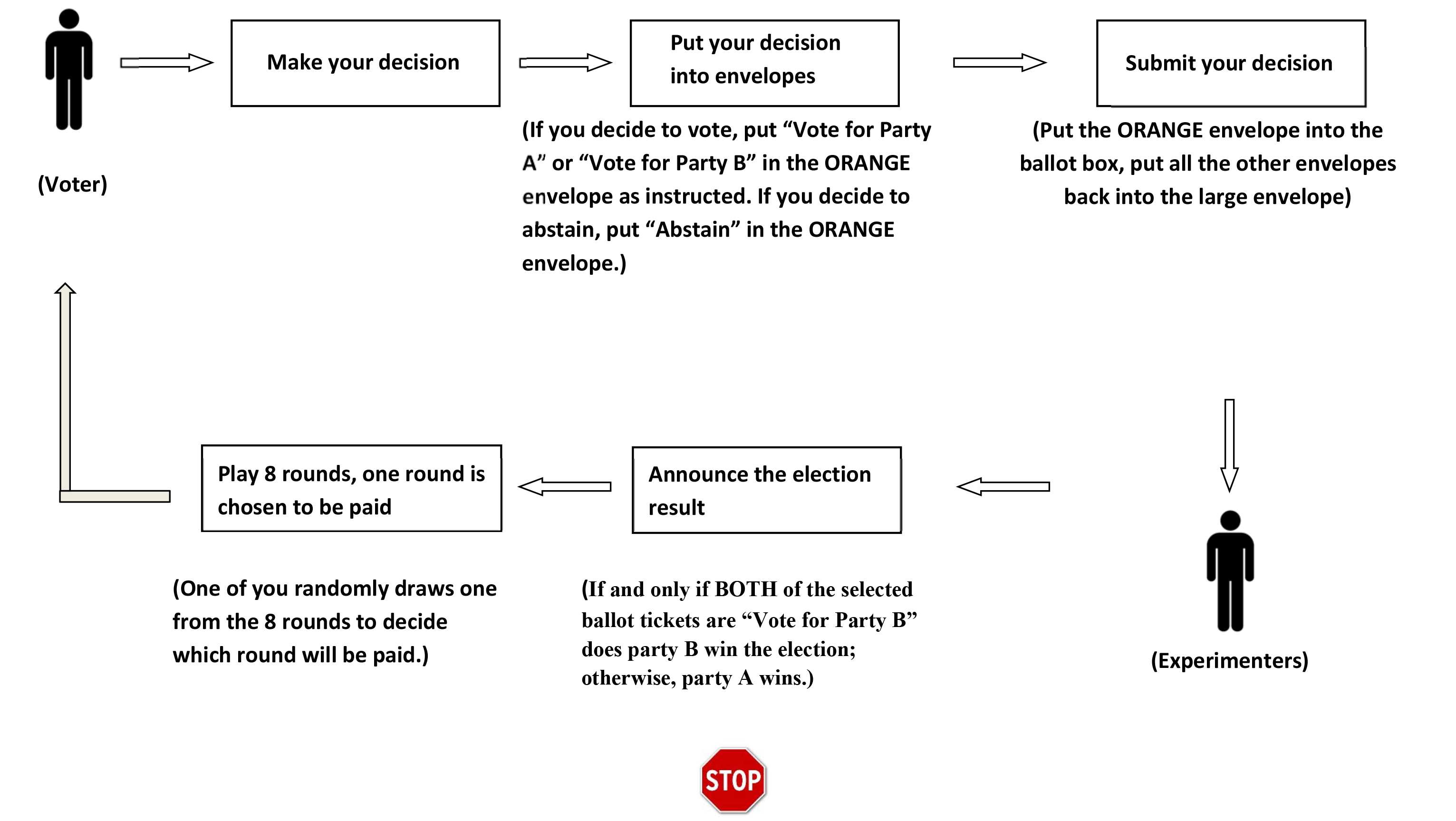 What motivates bandwagon voting behavior: Altruism or a desire to win?Rebecca B Morton, and Kai OuEuropean Journal of Political Economy, 2015
What motivates bandwagon voting behavior: Altruism or a desire to win?Rebecca B Morton, and Kai OuEuropean Journal of Political Economy, 2015This paper surveys the literature on psychological and strategic mental processes of bandwagon behavior, discusses the literature of bandwagon behavior in the context of the two different types, bandwagon vote choices and bandwagon abstention effects, and examines the rationality of other-regarding bandwagon vote choices. Key experimental results are reported to investigate the extent that bandwagon behavior can be explained by other-regarding preferences in contrast to a psychological desire to simply support a winner. We find support for purely psychological non-other-regarding bandwagon behavior but primarily when subjects have information about the distribution of voter choices in previous elections but individual choices are private. Interestingly, when voting is public this type of bandwagon behavior disappears and bandwagon behavior that could be other-regrading is much higher. Given that observability increases other-regarding behavior in other contexts, our results suggest that some of the observed bandwagon behavior may be explained by other-regarding preferences as well.
@article{morton2015motivates, title = {What motivates bandwagon voting behavior: Altruism or a desire to win?}, author = {Morton, Rebecca B and Ou, Kai}, journal = {European Journal of Political Economy}, volume = {40}, pages = {224--241}, year = {2015}, publisher = {Elsevier} }